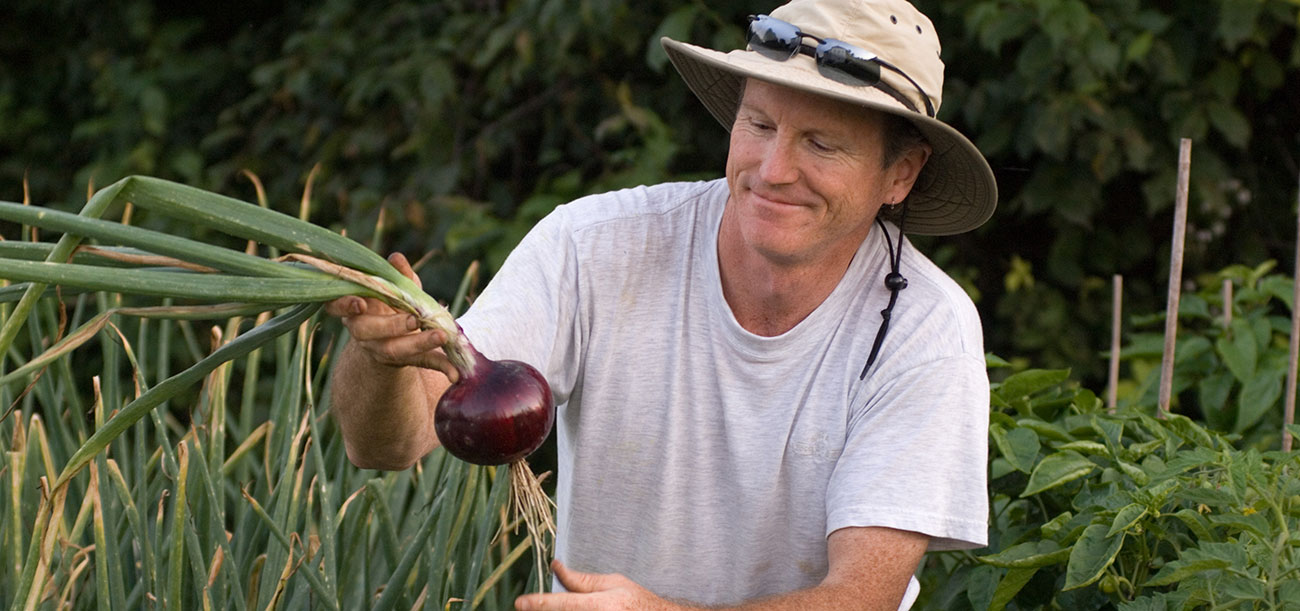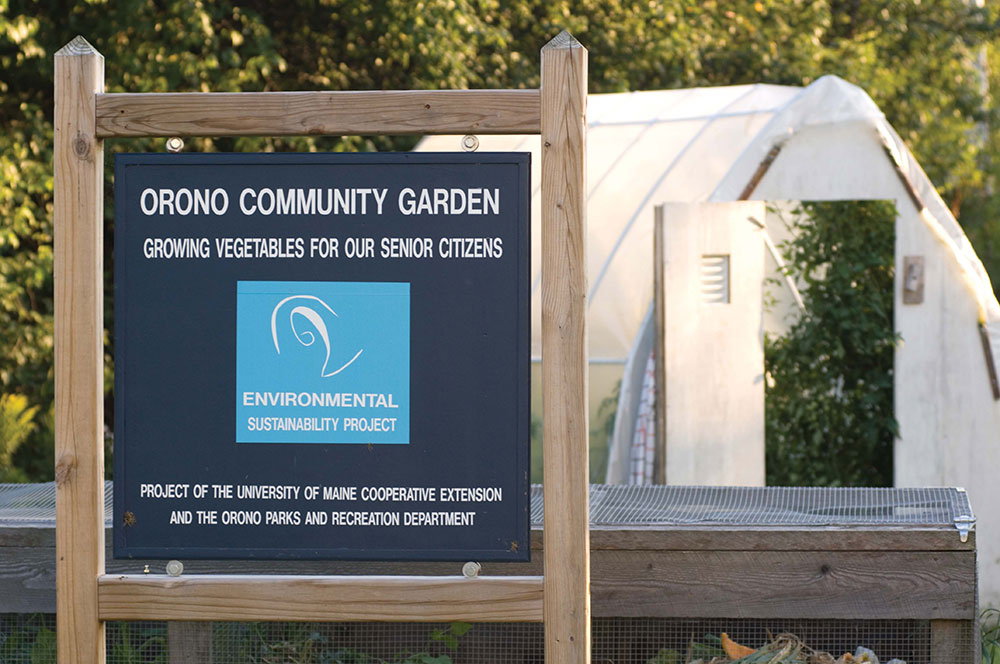Bulletin #4311, Planning and Managing a Community “Giving” Garden in Maine

Print the entire Guide: Bulletin #4311, Planning and Managing a Community “Giving” Garden in Maine (PDF)
By John Jemison, Extension Professor, Soil and Water Quality, University of Maine Cooperative Extension
For information about UMaine Extension programs and resources, visit extension.umaine.edu.
Find more of our publications and books at extension.umaine.edu/publications/.
Background
Fifteen years ago, I taught an Environmental Sustainability course for University of Maine Cooperative Extension. It was a seven-evening session involving approximately 20 hours of education/training. I asked participants to return 20 hours of service to the community. I also suggested (having never really gardened in a group or community setting) that we might consider taking some unused town land and starting a garden where we could supply food to the Birch Street Senior Citizen Center in Orono, Maine. A low-cost lunch is offered at the center four days a week, which helps ensure that Orono seniors do not go hungry. I thought some fresh food would be nice. The original plan fell through, but we altered the plan to grow diverse fresh vegetables and bring a bag of vegetables with a recipe to people living in low-income senior housing near the garden. We have delivered many tons of food over the past 15 years and made great connections with seniors in the area. All of us have learned a great deal about the challenges and rewards of growing food and working together. This publication is an effort to capture what we have learned and give others a guide to do this type of a program in another area. The information provided here should be reasonably applicable across all New England.
Guide Organization
This guide is intended to help anyone who has an interest in community gardening to do that task with skill and capacity. Gardening isn’t difficult, but gardening well is not easy. This guide can be useful for anyone who gardens, but I have designed it intentionally to help people start community gardens and community giving gardens. This guide provides information on gardening methods; pest management; what, when, and how to plant specific vegetables with a focus on New England growing conditions; delivery program basics; and putting the garden to bed for the winter. I have also included some links to recipes that can be given to the food recipients so that they know what to do with the foods we provide.
Table of Contents
- Starting a Garden Program
- Volunteers and Volunteer Management
- Breaking Ground
- Why Raised Beds
- Double Digging
- Adding Fertility Using Organic Production Methods
- Proper Use of Compost
- Feeding Plants
- Controlling Insects and Other Pests Organically
- Controlling Fungal Pathogens in the Garden
- Controlling Weeds in the Garden
- Controlling Vertebrate Pests in the Garden
- How Finely Should the Soil Be Worked?
- Soil Organic Matter Management and Impact on Plants
- Ready to Plant: Stage 1—Earliest Sown and Transplanted Vegetables
- Ready to Plant: Stage 2—Next Plants to Sow or Transplant
- Ready to Plant: Stage 3—After the Last Frost
- Planning to Start Your Deliveries
- Harvesting and Delivering
- How Long to Deliver
- Repeat Plantings
- Cover Cropping
- Ready to Plant: Stage 4—Late Planting
- Putting the Garden to Sleep
- Overwinter Storage
- Conclusions
Information in this publication is provided purely for educational purposes. No responsibility is assumed for any problems associated with the use of products or services mentioned. No endorsement of products or companies is intended, nor is criticism of unnamed products or companies implied.
© 2019
Call 800.287.0274 (in Maine), or 207.581.3188, for information on publications and program offerings from University of Maine Cooperative Extension, or visit extension.umaine.edu.
In complying with the letter and spirit of applicable laws and pursuing its own goals of diversity, the University of Maine System does not discriminate on the grounds of race, color, religion, sex, sexual orientation, transgender status, gender, gender identity or expression, ethnicity, national origin, citizenship status, familial status, ancestry, age, disability physical or mental, genetic information, or veterans or military status in employment, education, and all other programs and activities. The University provides reasonable accommodations to qualified individuals with disabilities upon request. The following person has been designated to handle inquiries regarding non-discrimination policies: Director of Institutional Equity and Title IX Services, 5713 Chadbourne Hall, Room 412, University of Maine, Orono, ME 04469-5713, 207.581.1226, TTY 711 (Maine Relay System).


